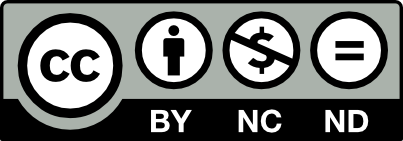Editorial Ethics
Journal of Psycosocial Systems (JPS) is a peer-reviewed, open access journal that is committed to ensuring the highest standards of publishing ethics. All the actors involved in the publication process (the publisher, the editorial board, the reviewers, the authors) must agree on standards of ethical behavior. JPS adopts guidelines that are fully consistent with the COPE principles of transparency and best practices and with the COPE Code of Conduct. More details are available here: https://publicationethics.org
JPS supports independent scientific research and open access. JPS only accepts original manuscripts, written in accordance with copyright laws, which meet quality standards and are not submitted for publication elsewhere. Condemns copyright infringement and plagiarism. Empirical research must be based on rigorous and documented data. JPS reserves, if necessary, the right of rectification or withdrawal of the article that does not meet these criteria.
Duties of the authors
They provide correct information on the sources and contributions mentioned in the article. They submit different articles to others already published by themselves or by others. They correctly attribute the authorship of the article and indicate as co-authors all those who have made a significant contribution to the conception, organization, implementation and reworking of the research that is the basis of the article. They undertake to check the correctness of the information contained in the article, including bibliographic information, before sending the article and promptly inform the editorial staff of any errors or inaccuracies.
Plagiarism
Plagiarism manifests itself in many different forms and constitutes unethical and unacceptable editorial behavior.The authors undertake to guarantee that they have written entirely original works as well as to guarantee that, if they have used scientific contributions or texts of others, they are appropriately cited.
Conflicts of Interest
All authors undertake to declare any financial or other conflicts of interest that may affect the results or interpretation of their manuscript. All sources of financial support for writing the mnuscript should be disclosed. Potential conflicts of interest should be disclosed as soon as possible. Readers should be informed about who funded the research and the role of the funders in the research.
Duties of Reviewers
They collaborate with the editors to make decisions on the publication of the articles submitted and suggest any changes that improve the manuscript. They promptly notify the editors of any inability to perform the review within the required time frame. They undertake to keep any text assigned to them for reading confidential and not to discuss it with other people without the explicit authorization of the editors. They carry out the review objectively, giving reasons for their judgments with argumentative clarity. They report to the editors any similarities or overlaps of the manuscript with other works known to them. They undertake to keep all information obtained during the peer-review process confidential and not to use such information for personal purposes. They undertake not to use the contents of an article received for review in their own research, without the explicit consent of the author.
Duties of editors
They are responsible for deciding whether or not to publish received articles, after reading and considering the reviewers' evaluations. They evaluate the articles proposed for publication exclusively on the basis of their content, without discrimination based on race, gender, sexual orientation, religion, ethnic origin, citizenship, political orientation of the authors. They undertake not to disclose information on the articles submitted to other people besides the author, to the reviewers. They undertake not to use the contents of an article submitted for publication in their own research, without the explicit consent of the author.





